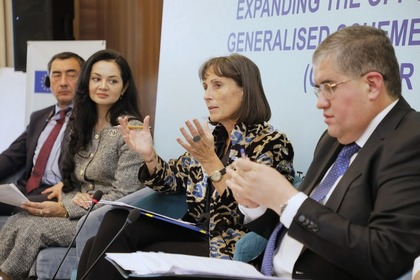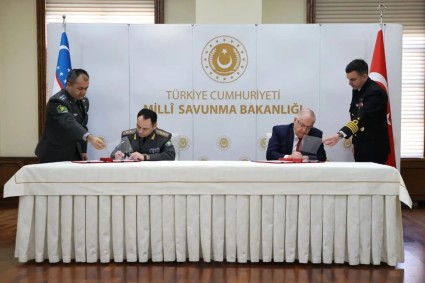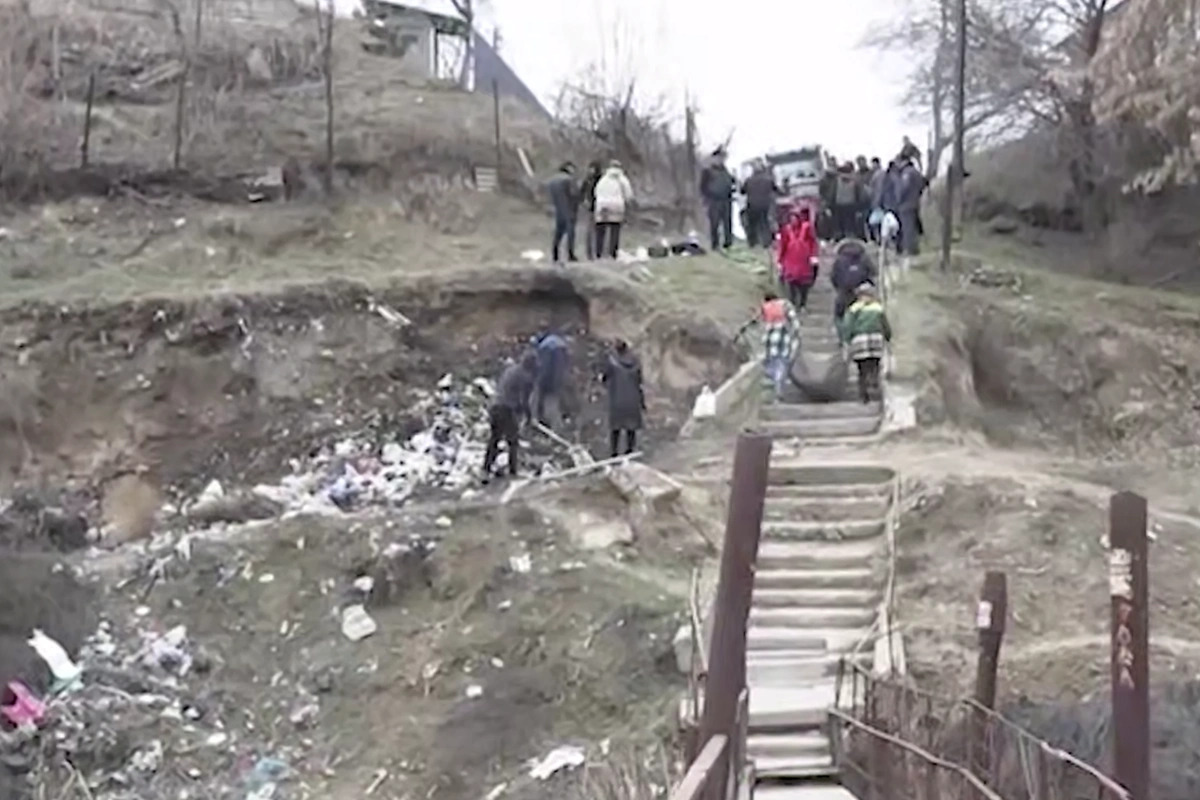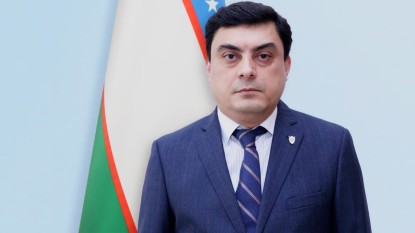The European Union decided on November 22 to extend the Generalized System of Preferences Plus (GSP+) for the next four years, until December 31, 2027.
This was announced by the Ambassador of the European Union to Uzbekistan Charlotte Adrian at a press conference held jointly by the Ministry of Investment, Industry and Trade and the EU Delegation in the country on November 23.
The event was also attended by Deputy Minister of Investment, Industry and Trade Badriddin Abidov, advisers to the heads of the associations Uztekstilprom Shakhzoda Kuchkarova, Uzeltekhsanoat Bektemir Murodov and director of the Tashkent Metallurgical Plant Zafar Tuychiev, who represent the interests of Uzbek GSP+ beneficiaries.
“I am very pleased to see that GSP+ is becoming a real success story in closer daily partnership between the EU and Uzbekistan,” said Charlotte Adrian. “And this is not only the success of the last two years, I am also sure that it will increase even more in the next four years.”
The Ambassador added that GSP+ was the main instrument of EU trade policy to support exports of developing countries to the EU. Having received GSP+ status, the country is waived from paying taxes for the export of more than 6,000 types of goods to the European market. So far, only eight countries in the world have access to such preferential conditions; Uzbekistan was the last to receive it.
“GSP+ has given a powerful impetus to the development of the private sector in your country, providing easier access to the 448 million European consumer base, closer cooperation between European and Uzbek companies and significant savings at borders,” the ambassador emphasized. She added that the recent report on the work of the GSP+ system for 2020-2022 confirms that it continues to contribute to economic stability and sustainable development in Uzbekistan even in times of uncertainty.
Since Uzbekistan joined GSP+, its exports to the EU have quadrupled. Exports of goods from Uzbekistan that meet GSP criteria amounted to 93 million euros in 2019, and already in 2022 - 450 million euros. "That's what we can call success, isn't it?" - said Charlotte Adrian.
While, thanks to the abolition of import duties, exporters in Uzbekistan saved more than 28 million euros in 2022. “This means that there is an opportunity to save 28 million euros, which would have been paid in taxes to enter the EU market, and which would have gone into the EU budget, for the further development of your companies and the private sector. This is the EU contribution to the development of the private sector in Uzbekistan last year. And compared to 2019, this contribution has increased by more than 10 times (from 2.5 million euros),” emphasized the Ambassador of the European Union.
She also underscored that if three years ago the leading products under the GSP were textiles and plastics, in 2022 they were replaced by a new direction - pharmaceuticals and other chemical products. “Thus, GSP has a positive impact on the diversification of the economy and industry of Uzbekistan,” the ambassador said.
Charlotte Adrian also spoke about which products will be in high demand in the European Union in the future. “As we expect growth in the manufacturing of machinery, automobiles, high-tech products and medical equipment, the demand for various electronic components and metal parts will increase. This way, your country can continue to build on its success by expanding the production of electronic goods and components thanks to reduced operating costs.”
In addition, the ambassador emphasized, as the EU moves to a “green” economy, supplies of metals and critical raw materials could further increase exports from Uzbekistan to the European Union.
The EU, through GSP+, supports Uzbekistan's strategy to achieve international standards in the areas of human and labor rights, as well as environment, climate and good governance.
Charlotte Adrian noted that Uzbekistan had made clear progress in applying 27 international conventions related to GSP+.
“There has been significant progress in improving legislation and related policies, with some variation in terms of compliance and implementation,” she said.
The EU highlighted the recent law to strengthen the protection of women and children from violence, the eradication of child and forced labor and the adoption of a new Labor Code as the most successful cases.
At the same time, Charlotte Adrian noted, there were also issues whose resolution was necessary for the full implementation of international obligations. “We observe some discrepancy between the legal framework and the implementation of civil and political rights. Additional efforts must be made, for example, to ensure freedom of association, including for trade unions. Freedom of expression is still sometimes called into question,” the ambassador emphasized.
These issues, highlighted in the GSP+ 2020–2022 report, will need to be addressed to ensure Uzbekistan's continued compliance with GSP+ requirements.
“And, of course, we will continue to support you in your reform efforts,” said Charlotte Adrian. “As we extend GSP+ for the next four years, we will have more time to work together on international human rights standards. The EU will continue to monitor progress in the implementation of the 27 UN conventions. The next EU observer mission to Uzbekistan will most likely take place next year.”















